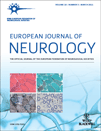The incidence of traumatic brain injury in an adult population – how to classify mild cases?
Abstract
Background: The incidence of traumatic brain injury (TBI) varies considerably between reports mainly because of variable methods used in recruiting of cases and especially in defining mild TBI. This study was carried out to evaluate the incidence in a given population according to published criteria for mild TBIs.
Methods: All cases with symptoms of brain injury after a head trauma were collected from the health centres serving a defined population in South East Finland and from the one hospital taking care of all corresponding TBI cases. After reviewing the health records, the author classified the TBIs according to the guidelines of European Federation of Neurological Societies (EFNS).
Results: A total of 370 patients were enrolled. The total crude annual incidence rate was 221 per 100.000 (95% CI: 176–265). A mild TBI was defined in 71% of the patients. According to the EFNS criteria, one-third of them should be classified only with head traumas because of the lack of either loss consciousness (LOC) or post-traumatic amnesia (PTA). This would reduce the total crude incidence rate to 137 per 100.000(95% CI: 101–172), an effect of the same magnitude as excluding mild TBIs treated out of hospital.
Conclusions: The incidence rate falls within the wide range of previous published figures. Use of LOC or PTA as a criterion for mild TBI affects the incidence rate considerably as does the exclusion of mild cases treated out of hospital.




